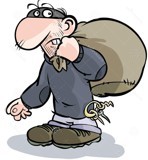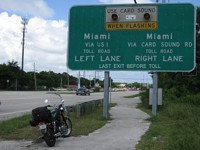NORTH PUFFIN–Inspired by neighboring Towns, some here have called for all-inclusive decriminalization of property crimes.
New resident Ashley Proctor wants to “end discrimination against those less fortunate who are driven to commit property events to survive.”
Regular readers may have met my friend Ms. Proctor. She is a twenty-something social engineer with an MSW who had lived in Madison, Wisconsin, before moving to North Puffin. She had worked as a Community Education Specialist at Wisconsin Community Services in a taxpayer-funded position until that state closed its $3.5 billion budget gap in part by eliminating 1,200 state jobs.
Burglary, larceny, motor vehicle theft, and arson all have the object of the taking of money or property without force or threat of force against the victim.
Residents of the small Vermont Town of Essex want a new policy to make all residents feel welcome — even if those new to town are in the country illegally. The resolution will make the Town a “fair and impartial community” with a town-wide policy covering anything from getting a library card to a dog license.
 “Who is hurt by a small ‘theft’,” she asked.
“Who is hurt by a small ‘theft’,” she asked.
“No one,” she answered immediately. “In fact, if someone realigns the ownership of your television set, at least four people benefit. The recipient who is now able to watch programs for perhaps the first time ever, the local business who sells you a replacement, you because you now have a new set with all the latest features, and the middleperson in this transaction.”
Transaction?
North Puffin is a reasonably safe place. There were 45 reported property crimes including one red truck disappeared from a barn, ten burglaries, one suspected arson, two cases of cattle rustling, and 31 other larcenies.
I wondered if the people who committed those crimes would get off scot free in Ms. Proctor’s world.
“They aren’t ‘crimes’,” she said.
Her draft ordinance reads,
“The Town of North Puffin shall refuse any requests to arrest or seize persons accused of property ‘crimes’ from any Sheriff, the State Police, or any federal enforcement agency. As a fair and balanced community, the Town shall treat all property events committed within the community as transactions, not subject to state or federal law.”
The Town attorney said he will review the proposed ordinance. Selectboard members wouldn’t speak on the record but say off the record that they can’t pass it but do want to continue the conversation.




